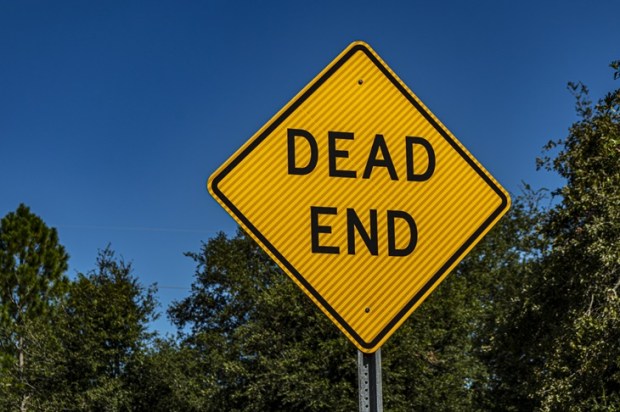Something is going seriously wrong with our children. Standards are declining in education; manners and respect are forgotten; ignorance, expectation, and entitlement abound… Where have we gone wrong?
The US Surgeon-General has announced that social media is harming children’s development, issuing an advisory that says:
The current body of evidence indicates that while social media may have benefits for some children and adolescents, there are ample indicators that social media can also have a profound risk of harm to the mental health and well-being of children and adolescents. At this time, we do not yet have enough evidence to determine if social media is sufficiently safe for children and adolescents.
Even at an early age, the concept of play has been taken over by activism, requiring it to be gender neutral; boys playing with tanks and girls with dolls is said to encourage gender stereotypes that have become unacceptable to academia. Some bizarre parents are even choosing to cross-dress their children, from kindergarten, to encourage diversity – surely this is a form of child abuse? In any case, playtime has become device time, with little opportunity for imagination, or development of manual or creative skills.
Schools have, for centuries, been a fertile ground for indoctrination. The Jesuit motto was: ‘Give me a child ‘til he is seven and I’ll show you the man.’ The curriculum has become filled with personal rights and the demands of race, sexuality and, (if any is included), rewritten history, leaving little time for the fundamentals of reading, writing, or understand simple mathematics. Modern teaching methods, and a lack of classroom discipline has compounded the problem.
Despite smaller classes and more resources than ever being allocated, surveys show a steady decline in educational outcomes. The enormously expensive reduction in class size, as part of the Gonski review of 2010, resulted in more teachers, but a continuing worsening of results. This waning of reading and writing ability is a major handicap to future employment. To fix this, the schools system needs to adopt adequate testing, avoiding cheating with old-fashioned weekly hand-written testing.
The recent ACARA finding that 14 per cent of children are functionally illiterate at the end of their 12 years of schooling has been hidden by sleight of hand, with the figure revised to 10 per cent being ‘in need of extra tuition’. The solution to these embarrassments proposed by the teacher’s union is to stop ‘stressful’ exams which reveal their failure. Alternatively, lowered pass marks can maintain the illusion of continuing success; in Queensland, the pass mark for many Year 12 subjects has dropped below 50 per cent, with 41 per cent considered a pass in English; in Victoria, even lower levels can be awarded a pass.
The politician’s expensive, knee-jerk response is to start schooling earlier, at the age of 4. In other countries, this approach has failed to produce long-term benefits, but $55 billion is due to be spent on childcare subsidies over the next 4 years. A return to traditional teaching methods is slowly occurring, but it follows a lost generation of unemployable illiterates, and also requires retraining of teachers to return to direct instruction.
As marriages flounder and single-parent or blended families become the norm, the conventional family unit is in decline; the absence of children’s discipline at home is increasingly apparent. The role of a father is often missing, both in the home and at school, as male teacher numbers drop away. Two incomes are increasingly needed to maintain a comfortable lifestyle, with parents handing over their children’s upbringing to schools. Often, their only input in the education process is to complain about the outcome. As teachers’ standards also decline, the ability to maintain classroom order has been lost; an OECD study of 15-year-olds showed Australia rated 70th out of 77 countries for class discipline.
Social media has had an enormous detrimental influence. Peer group pressure has resulted in bullying, body image concerns, sexting, gender dysphoria, and anti-social behaviour, leading to a dramatic rise in the incidence of emotional distress and juvenile crime. The gender-confusion pandemic, largely involving primarily girls who want to be boys, even has its own community of online ‘influencers’ to help the transition process; the result is a ten-fold expansion in confused teenagers seeking medical or surgical intervention. This transition is often done through school, and without parental consent (or knowledge).
Juvenile crime in 10 to 14-year-olds has increased by 50 per cent in 5 years, often encouraged by social media notoriety, not greed or need. The latest Victorian statistics are even worse, showing an 86 per cent increase in crime in this age group. The belated banning of phones from schools in most states is a step forward in controlling this addictive behaviour, with Queensland belatedly considering this move.
94 per cent of teenagers are ‘highly wired’; 67 per cent of primary-aged children and 36 per cent of pre-schoolers have their own smart devices. Reliance on the phone and its contents has created a range of new medical conditions with anxiety overlay; FOMO (fear of missing out) when offline, and the even more serious loss of a phone with all its contents (‘nomophobia’).
The recent Royal Children’s Hospital health poll revealed 83 per cent of teenagers exceed the maximum recommended 2 hours a day screen-time, with a staggering 44 hours per week devoted to study, entertainment, and communication. 43 per cent of young people use their devices at bedtime, 25 per cent of children have resulting sleep problems. Even mealtimes are no longer off limits. An APS study found 24 per cent of teens regularly used social media when they are eating. The increased incidence of stress and bullying coincides with the introduction of this addictive technology and, despite our increased physical comfort, adolescent self-harm and suicide are on the rise. The recent Covid pandemic, with schools unnecessarily closed, and lack of physical contact, has added to the tension.
Japanese studies have shown that early and excessive use of these devices is associated with permanent brain damage; how often are toddlers given a screen to entertain them? Children under 2 years should not have access to screens; those older should have exposure limited to 2 hours a day. Using television as a babysitter reduces activity and increases the risk of obesity, unsupervised use of media in the Covid crisis averaged 7 hours a day, adding fatigue to the equation. Computer games can, in moderation, improve attention and visuospatial coordination; long-term and heavy use in adolescence can lead to damage to the hippocampus (an important memory area of the brain), and addiction. Restricting use requires parental input, and is vital to prevent long-term damage to brain development.
Many hours spent on devices have contributed to the rise of an alphabet of behavioural disorders, ADHD, OCD, ODD, DD, all now coming together under the label autism spectrum. The latest statistics show that 11 per cent of 5 to 7-year-old boys and 5 per cent of girls have autism spectrum disorder and are included in the National Disability Insurance Scheme, (NDIS), adding to its unsustainability and likely bankruptcy.
The modern media’s obsession with crisis is adding to mental problems. Brainwashing about the climate-induced end of the world, including the exaggeration of Australia’s regular droughts, floods, and fires, the death of the great barrier reef, and the extinction of species is playing a role in the decline of mental health. The rate of anxiety/depression has doubled in 30 years, with rising suicide rates.
Children are now inappropriately being used by teachers as leaders of protests, instead of being at school. They are encouraged to march the streets in protest to save the planet. They protest about waste, but are careless about the use of plastic or its recycling, rubbish is dropped at will, toys and clothes are thrown away. The detrimental effect of ubiquitous advertising plays a significant role in waste accumulation, their demands enhanced by more ‘influencers’.
A return to competition is needed, both with both sport and academia, to equip students for the real world outside, where rivalry can be fierce and cannot be avoided. A lack of competition at an early age, whether in class or in the sporting field, seems to be producing young adults with an over-expectation of their ability; in the 1950s 12 per cent of young adults thought they were special, today surveys suggest 80 per cent do.
Paradoxically, this narcissism has resulted in an inability to compete. When faced with competition in later life, this acopia results in the stress avoiding competition was supposed to prevent. Those who do work, have an increasingly reluctant approach to it, the modern phrase to describe it being ‘quietly quitting’.
With so much time taken up with inactivity and screens, it is no surprise that children’s weight is increasing and fitness is declining. Children no longer walk to school, there are rarely stairs to climb, they walk only a few paces from the car to the shop. The number participating in team sports is also in decline, the loss of the camaraderie of team sports is another step backwards in forming relationships.
As the obesity epidemic progresses, the associated health problems are on the rise, with childhood diabetes an early marker. Australians follow the US, with two-thirds of adults being overweight, and over 20 per cent now obese sending adult life expectancy is already in decline. The weight gain is occurring at progressively earlier ages, as poor diet and inadequate exercise contribute. Sadly, the problem is inter-generational and well established; overweight mothers give birth to overweight babies who will become overweight adults.
As an increasing proportion of youth move on to university; aided by lower entry standards, that underserved sense of entitlement is further enforced. Students take courses which, even with lowered pass marks, lead to a higher drop-out rate. For those who do complete, their courses increasingly fail to lead to employment, leaving them with debt. Meanwhile, they are further exposed to the left-wing academia which stunts their ability to question opinion.
The future for the over-indulged, under-educated, self-opinionated, overweight, offspring of Western society looks grim; youths’ lack of resilience is increasing, and they seem incapable of coping with adverse events. In the 19th century, philosopher Friedrich Nietzsche said, ‘What doesn’t kill you makes you stronger.’ This no longer applies in modern society; now what doesn’t kill you enfeebles you, resulting in a need for counselling and extra support.
Parents must put in the time to regain control of their children’s development; they also, need to take time out from the contagion of their own devices; leaving responsibility to supposed experts at school has plainly not worked. Discipline needs to be restored in the home, treats have to be earned, and entitlement contained, diets better controlled, physical activities encouraged and screen time limited. Schools must emphasise the importance of curricula based on learning fundamentals instead of social engineering. Teachers need to rediscover classroom control and the importance of rote learning – something still producing results in less financially well-endowed countries elsewhere. The approach of last resort – return of national service – has even been advocated, by former Premier, Jeff Kennett…
Physical as well as mental fitness needs to be restored, experts have now realised that exercise is good for stress, perhaps we don’t need all those counsellors; the starting point may be as simple as putting away the phone and going for a long walk outside.
Graham Pinn, Retired Doctor, and a grandfather who cares
Got something to add? Join the discussion and comment below.
Get 10 issues for just $10
Subscribe to The Spectator Australia today for the next 10 magazine issues, plus full online access, for just $10.


























Comments
Don't miss out
Join the conversation with other Spectator Australia readers. Subscribe to leave a comment.
SUBSCRIBEAlready a subscriber? Log in